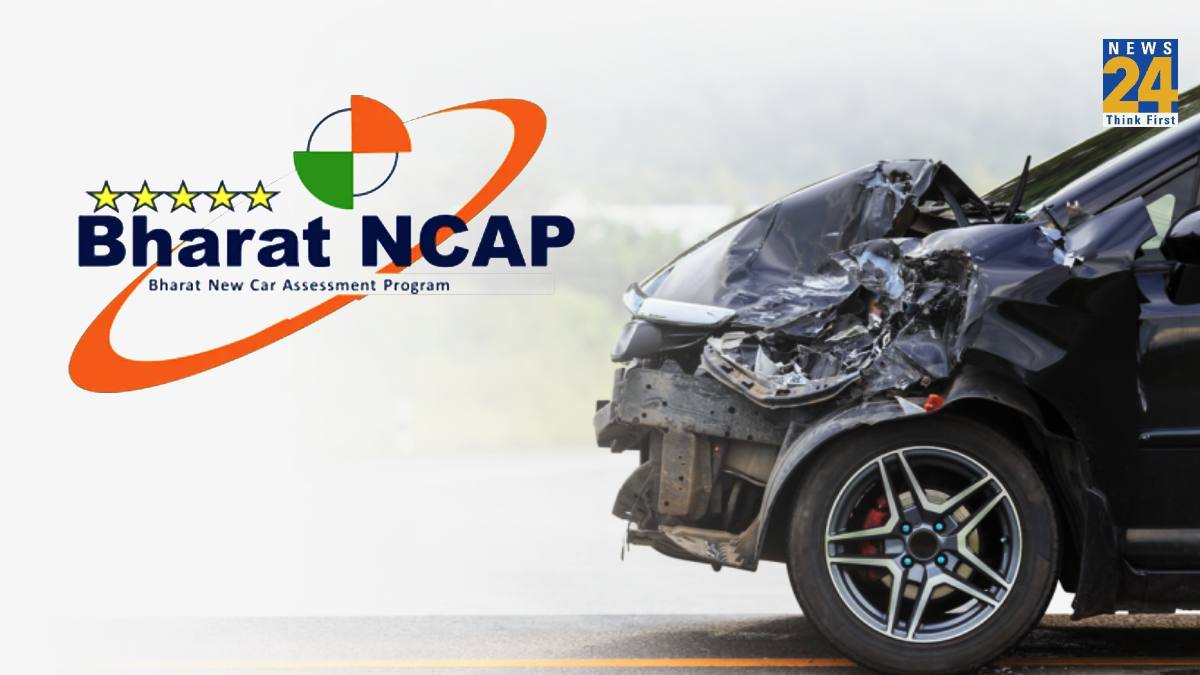Govt to roll out vehicle safety programme Bharat NCAP on October 1

Govt to roll out vehicle safety programme Bharat NCAP on October 1
The Indian government has announced the upcoming launch of the Bharat New Car Assessment Programme (NCAP) on October 1. This initiative is designed to enhance vehicle safety standards within the country. Modeled after the Global NCAP and European NCAP frameworks, the Bharat NCAP will focus on evaluating the safety aspects of new vehicles through comprehensive crash tests, ultimately assigning them star ratings based on their performance.
The introduction of the Bharat NCAP reflects the government’s commitment to improving road safety and ensuring that vehicles meet stringent safety standards. By subjecting new vehicles to rigorous crash tests and providing them with star ratings, consumers will be better informed about the safety attributes of the cars they consider purchasing.
Much like its international counterparts, the Bharat NCAP is poised to contribute significantly to raising awareness about vehicle safety and fostering a culture of prioritizing safety when choosing automobiles. This initiative is especially important in a country like India, where road safety concerns are paramount due to the high number of road accidents and fatalities.
With the Bharat NCAP set to launch on October 1, the Indian automotive industry is poised for a notable transformation in terms of safety standards. This initiative has the potential to drive manufacturers to enhance vehicle safety features and design to ensure that vehicles meet the stringent criteria for star ratings.
The launch of the Bharat New Car Assessment Programme (NCAP) on October 1 was heralded by Minister for Road Transport and Highways, Nitin Gadkari, who emphasized the significance of this step for both the automobile industry and society at large. During the launch event, Gadkari highlighted the alarming statistics of road accidents in India, with over five lakh accidents annually resulting in approximately 1.5 lakh deaths.

Minister Gadkari emphasized that the Bharat NCAP holds the potential to make a substantial impact by reducing these distressing numbers. By subjecting new vehicles to comprehensive safety assessments, including rigorous crash tests, the programme aims to raise the safety standards of vehicles available to Indian consumers.
Furthermore, Gadkari pointed out the broader implications of the Bharat NCAP. He highlighted how this initiative will not only benefit road safety within India but also position the Indian automobile industry to tap into the international export market. By offering vehicles with improved safety features and quality, the industry can enhance its global competitiveness and reputation.
The launch of the Bharat NCAP is seen as a pivotal moment for the Indian automotive sector. It signifies a collective effort by the government, manufacturers, and stakeholders to prioritize road safety and elevate the overall safety standards of vehicles on Indian roads.
The testing protocol of the Bharat New Car Assessment Programme (NCAP) is designed to align with established global crash test protocols while also considering the existing regulatory framework in India. This approach ensures that the testing procedures incorporate internationally recognized safety standards while accounting for the specific conditions and requirements of the Indian market.
By adopting global crash test protocols, the Bharat NCAP aims to provide comprehensive and standardized evaluations of vehicle safety performance. These protocols are developed based on extensive research and expertise in assessing various aspects of vehicle safety, including occupant protection and structural integrity during crashes.
At the same time, the programme acknowledges the significance of Indian regulations and road conditions. Factors such as road infrastructure, traffic patterns, and vehicle usage can influence safety priorities and considerations in the Indian context. Therefore, the testing protocol of the Bharat NCAP takes into account these unique factors to provide a holistic assessment of vehicle safety that is relevant to the Indian environment.

The integration of global crash test protocols with Indian regulations is a strategic approach that allows the Bharat NCAP to set high safety benchmarks for vehicles while also ensuring their suitability for the local market. This alignment contributes to improving road safety by encouraging the development and adoption of vehicles that offer robust protection to occupants in the event of accidents.
As of now, crash-testing vehicles is not mandatory in India. However, certain companies have chosen to voluntarily subject some of their models to testing at NCAP-accredited centers in Europe. The introduction of the Bharat New Car Assessment Programme (NCAP) marks a significant shift in this landscape by establishing a domestic framework for vehicle safety testing.
One notable advantage of the Bharat NCAP is the potential for significantly lower testing costs. With the establishment of domestic testing facilities, manufacturers can conduct crash tests within the country, reducing logistical expenses associated with testing abroad. This, in turn, makes it more accessible for companies to assess the safety performance of their vehicles.

Furthermore, the implementation of an India-specific NCAP is expected to drive the local production and integration of safety components. Manufacturers will be incentivized to prioritize safety features in their vehicles to meet the standards set by the Bharat NCAP. This move toward safety-centric vehicle design and production aligns with the broader global trend of elevating vehicle safety standards.
While the initial phase of crash testing under the Bharat NCAP may be voluntary, there is potential for the regulatory landscape to evolve over time. As the country builds its capacity for domestic crash testing, regulations could be tightened to make such testing mandatory. This progression would reflect the ongoing commitment to road safety and the recognition of the pivotal role that vehicle safety standards play in preventing accidents and protecting occupants.




